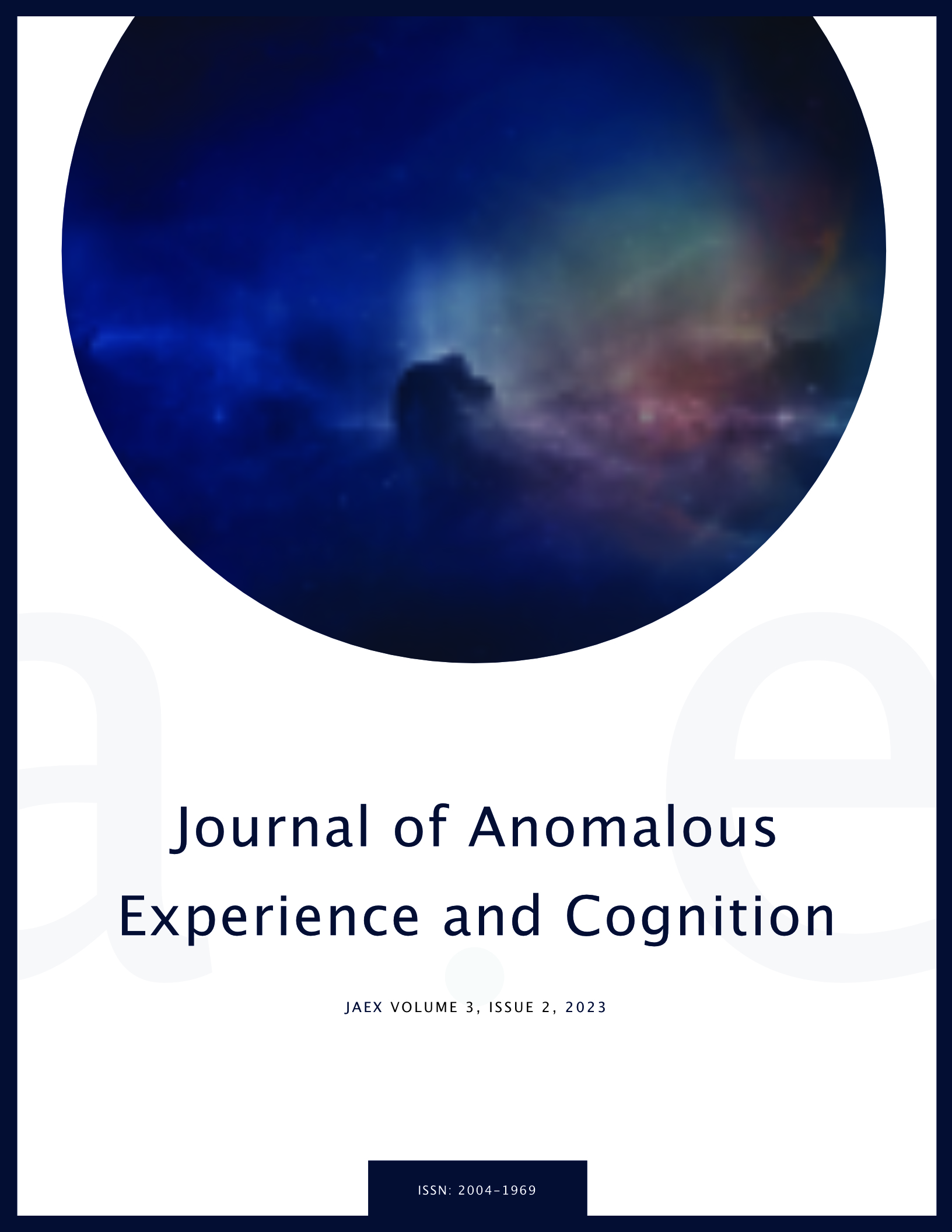Charles Tart’s Contributions to Parapsychology
A Scientific Career Sparked by the Cabbage Patch Kid
DOI:
https://doi.org/10.31156/jaex.25229Keywords:
Charles Tart, anomalous cognition, parapsychology, transtemporal inhibition, feedback, fear of psi, psychophysiologyAbstract
In this Festschrift in honor of Charles Tart, I originally intended to focus on how Charley – as his friends call him – influenced the discipline of parapsychology from his entry into the field in the 1960s to the present day. That turned out to be an overly ambitious goal because Charley has made so many influential contributions, and in so many facets of parapsychology, that it is not possible to cover them all without writing a lengthy monograph. So instead, I offer a few words about how Charley influenced my own involvement in the field, then I mention four topics that continue to shape the way I think about and approach the study of psi phenomena, and I finish my tribute with an edited transcript of a delightful chat I had with him in preparation for writing this article.
References
Bernstein, M. (1956). The search for Bridey Murphy. Doubleday.
Cohen, R.A. (2011). Temporal inhibition. In J. S. Kreutzer, J. DeLuca, & B. Caplan (Eds), Encyclopedia of clinical neuropsychology (pp. 2480-2481). Springer. https://doi.org/10.1007/978-0-387-79948-3_1406
Kean, L., & Blumenthal, R. (2022, May 10). House panel to hold public hearing on unexplained aerial sightings. The New York Times. https://www.nytimes.com/2022/05/10/us/politics/ufo-sightings-house-hearing.html
Kline, M. V. (Ed.) (1956). A scientific report on “The search for Bridey Murphy.” Julian Press.
Marwaha, S. B., & May, E. C. (2019). Informational psi. Zeitschrift Für Anomalistik, 19(1-2), 12–51. https://doi.org/10.23793/zfa.2019.12
Puharich, A. (1962). Beyond telepathy. Darton, Longman & Todd.
Reber, A. S., & Alcock, J. E. (2019). Searching for the impossible: Parapsychology’s elusive quest. American Psychologist, 75(3), 391-399. https://doi.org/10.1037/amp0000486
Targ, R. (2023). Third eye spies. New Page Books.
Tart, C. T. (1963). Physiological correlates of psi cognition. International Journal of Parapsychology, 5, 375–386.
Tart, C. T. (1966). Card guessing tests: Learning paradigm or extinction paradigm? Journal of the American Society for Psychical Research, 60(1), 46–55.
Tart, C. T. (1968). A psychophysiological study of out-of-the-body experiences in a selected subject. Journal of the American Society for Psychical Research, 62(1), 3–27.
Tart, C. T. (1972a). States of consciousness and state-specific sciences. Science, 175, 1203–1210. https://doi.org/10.1126/science.176.4040.1203
Tart, C. T. (1972b). Altered states of consciousness. John Wiley & Sons.
Tart, C. T. (1975). Transpersonal psychologies. Harper & Row, Publishers.
Tart, C. T. (1976). Learning to use extrasensory perception. University of Chicago Press.
Tart, C. T. (1977). Toward conscious control of psi through immediate feedback training: Some considerations of internal processes. Journal of the American Society for Psychical Research, 71(4), 375–407.
Tart, C. T. (1978). Space, time and mind. In W. Roll (Ed.), Research in Parapsychology 1977 (pp. 197–250). Scarecrow Press.
Tart, C. T., Puthoff, H. E. & Targ, R. (1980). Information transmission in remote viewing experiments. Nature, 284(5752), 191. https://doi.org/10.1038/284191a0
Tart, C. T. (1982). The controversy about psi: Two psychological theories. Journal of Parapsychology, 46(4), 313–320.
Tart, C. T. (2009). The end of materialism: How evidence of the paranormal is bringing science and spirit together. New Harbinger.
Tart, C. T. (2017). On the resurrection of trans-temporal inhibition. Journal of Scientific Exploration, 31(1), 29–48.
Downloads
Published
How to Cite
Issue
Section
License
Copyright (c) 2023 Dean Radin

This work is licensed under a Creative Commons Attribution 4.0 International License.
All articles published in JAEX are open access, freely and universally accessible online, and archived in the open journal’s Lund University website (https://journals.lub.lu.se). Articles in JAEX can be distributed under the terms of the Creative Commons Attribution 4.0 International License CCBY (http://creativecommons.org/licenses/by/4.0/), which permits unrestricted use, distribution, and reproduction in any medium, with appropriate credit to the original author(s) and the source, a link to the Creative Commons license, and an indication if changes were made.



